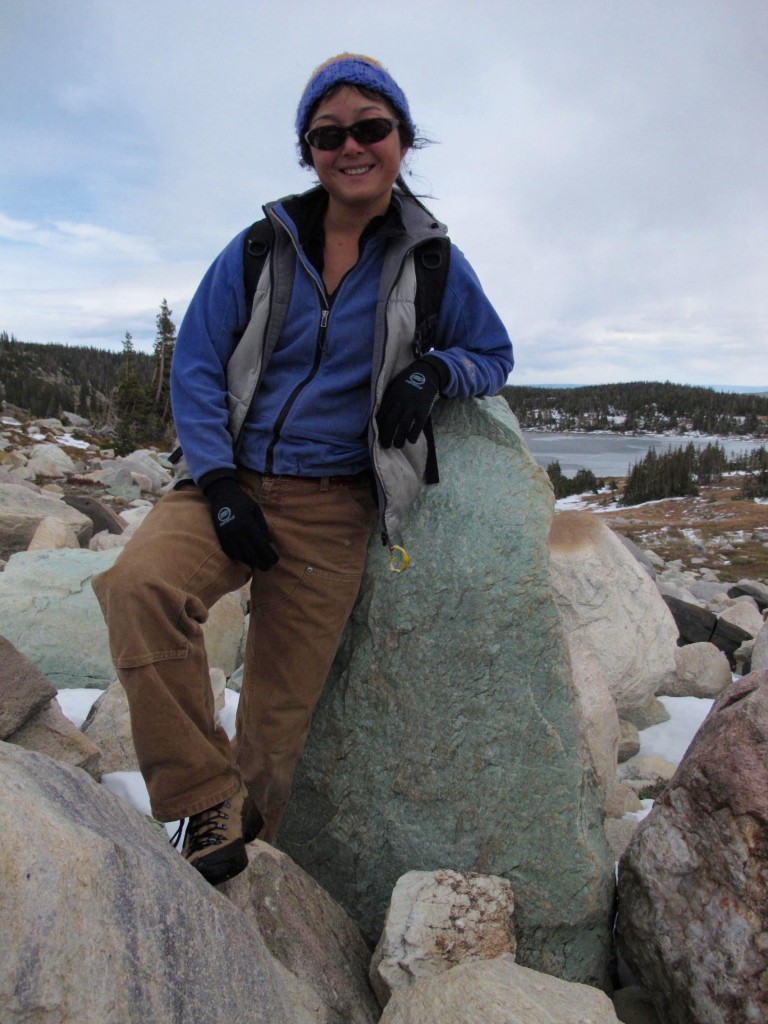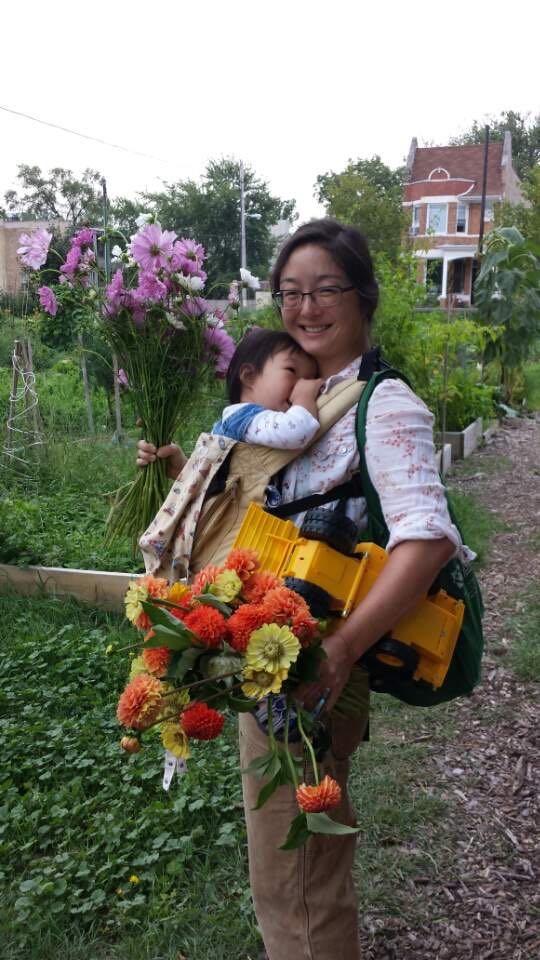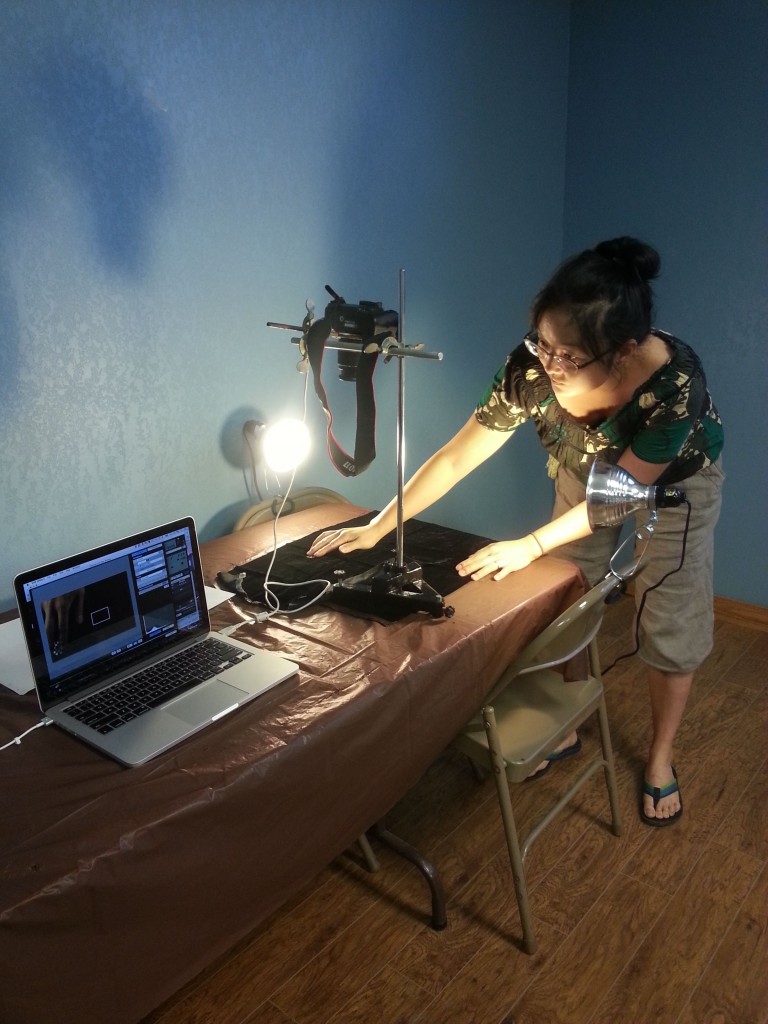Sora Kim
 Sora Kim is interested in the interaction between ecology and environment, especially during periods of climate change. Her primary tool is stable isotope analysis, which allows her to work within and among various disciplines such as paleontology, geochemistry, oceanography, and physiology. She has always found roots in geoscience. She did her undergraduate at Dartmouth College in the Earth and Environmental Sciences Department, graduate work at Univ. of California Santa Cruz in the Earth and Planetary Sciences Department, postdocs at Univ. of Wyoming in the Department of Geology & Geophysics as well as Univ. of Chicago in the Department of the Geophysical Sciences, and now is an Assistant Professor at the Univ. of Kentucky in the Department of Earth and Environmental Sciences. In each of these places, she also benefit from links to Ecology and Evolutionary Biology, Zoology, Organismal Biology, and Agriculture. She enjoys exploring and unraveling the biotic and abiotic interplay.
Sora Kim is interested in the interaction between ecology and environment, especially during periods of climate change. Her primary tool is stable isotope analysis, which allows her to work within and among various disciplines such as paleontology, geochemistry, oceanography, and physiology. She has always found roots in geoscience. She did her undergraduate at Dartmouth College in the Earth and Environmental Sciences Department, graduate work at Univ. of California Santa Cruz in the Earth and Planetary Sciences Department, postdocs at Univ. of Wyoming in the Department of Geology & Geophysics as well as Univ. of Chicago in the Department of the Geophysical Sciences, and now is an Assistant Professor at the Univ. of Kentucky in the Department of Earth and Environmental Sciences. In each of these places, she also benefit from links to Ecology and Evolutionary Biology, Zoology, Organismal Biology, and Agriculture. She enjoys exploring and unraveling the biotic and abiotic interplay.
Sora’s research broadly has two strands: sharks and terrestrial nutrient cycling. There is no interplay between these two systems, but she finds them fascinating. Her interest in sharks began during her PhD when she realized there were very few modern or paleoecology studies using stable isotope analysis. She conducted an almost 4 year experiment with captive sharks to trace how dietary nutrients and environmental signals were recorded in soft and hard tissues. This experiment produced the biological parameters for applying stable isotope analysis to diet and habitat studies of shark ecology. Once she finished her PhD, she decided to shift to deeper time and she uses ancient shark teeth as oceanographic data buoys of the past. Sora’s questions related to sharks are more interlinked with past climate change, but still require her to think about the role of ecology, which is much more difficult with extinct species. Her research in nutrient cycling is collaborative and brings together an array of techniques to weave the story of vegetation, hydrology, climate, and nutrient dynamics using lake core sediments. However, in many instances our understanding of modern nutrient cycling and biomarker synthesis has gaps and further exploration of modern ecosystems and physiology are needed.
One of the primary reasons Sora pursued academia was her interest to work with students in the classroom and laboratory. She enjoys seeing students explore the process of learning and hopes to open that opportunity to more underrepresented students. She was previously involved in Expanding Your Horizons, Workshops for Engineering and Science Transfer Students, and teaching a stable isotope short course for graduate students in Mexico. Sora found these outreach activities helped her cope when her research was slow. She adds that, “I had to take the advice from ESWN workshops and say “no” to many outreach opportunities while I navigated my adjustment to parenthood and being on the job market.”
Sora expresses that she is very grateful to ESWN. It was very helpful to see the issues and solutions faced by women in geoscience across a spectrum of institutions, seniority, and disciplines. “When I decided to have a kid, I was scared for the professional implications but it was so reassuring that so many women had already done this and were rocking their careers. This collective wisdom is an amazing gift.” Sora also benefited from the professional development workshops supported by ESWN. She attended the workshops 1) Networking and Communications and 2) Building Leadership and Management Skills for Success, which impacted her confidence, communication, and how she is starting her faculty position. Sora tells almost every woman geoscientist to join ESWN because of its positive impact on her career. Now that she is in a more stable position, she hopes to contribute more to ESWN.

